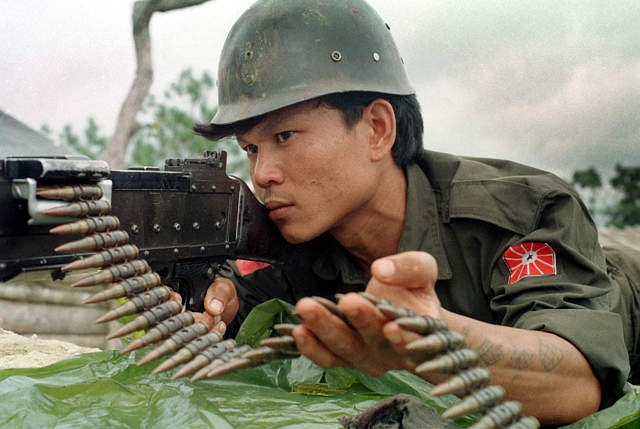The Karenni National Progressive Party’s Vice President Abel Tweed said holding additional rounds of talks with the government is still necessary after agreeing to an initial ceasefire in March and a union-level deal in June.
“We have to talk a lot more because none of the conditions we proposed have been met. Especially when we talk about executive matters – we have to have a thorough discussion regarding the 2008 constitution,” said the vice president during his speech at the Karenni Resistance Day celebrations at the group’s headquarters on the Thai-Burma border on 9 August.
“There is no way we will kneel down to Thein Sein’s government today.”
He said the Burmese army continues to increase the number of its troops in Karenni state after agreeing to the ceasefire.
Karenni National Women’s Organisation secretary Maw Tho Myar said peace needs to be established indiscriminately in every ethnic region across the country.
“There have been peace-making efforts in Karenni state over the past few months, like in many parts in Burma. But I see that it is still not yet possible to fully accomplish this as there are other groups such as the Karen and the Shan and we heard there are different procedures with these [groups],” said said Maw Tho Myar.
“So I don’t think we can say there is a complete change – not 100 percent. I would like to say there will be genuine change in Burma only when all ethnics, not only the Karenni, work together as a whole.”
On 9 June, the KNPP and the government signed a 14-point, union level agreement that allowed for the opening of liaison offices in several Karenni state towns. However, the armed group has not discussed troop movements and positions with Naypyidaw.
To date, the KNPP had opened offices in Loikaw, Hpasaung and Shataw townships.
While the government has signed a raft of agreements with several of the countries armed groups, the ceasefires haven’t been able to guarantee an end to violence. Similar deals have failed to stop government troops from engaging with rebel armies in northern and southern Shan state as fighting continues in the country’s far north after a 17-year ceasefire agreement with the Kachin Independence Army collapsed in June 2011.
The KNPP’s first ceasefire agreement with the government was signed in 1995 but broke down after the Burmese army continued to engage with Karenni troop and hostilities resumed.



